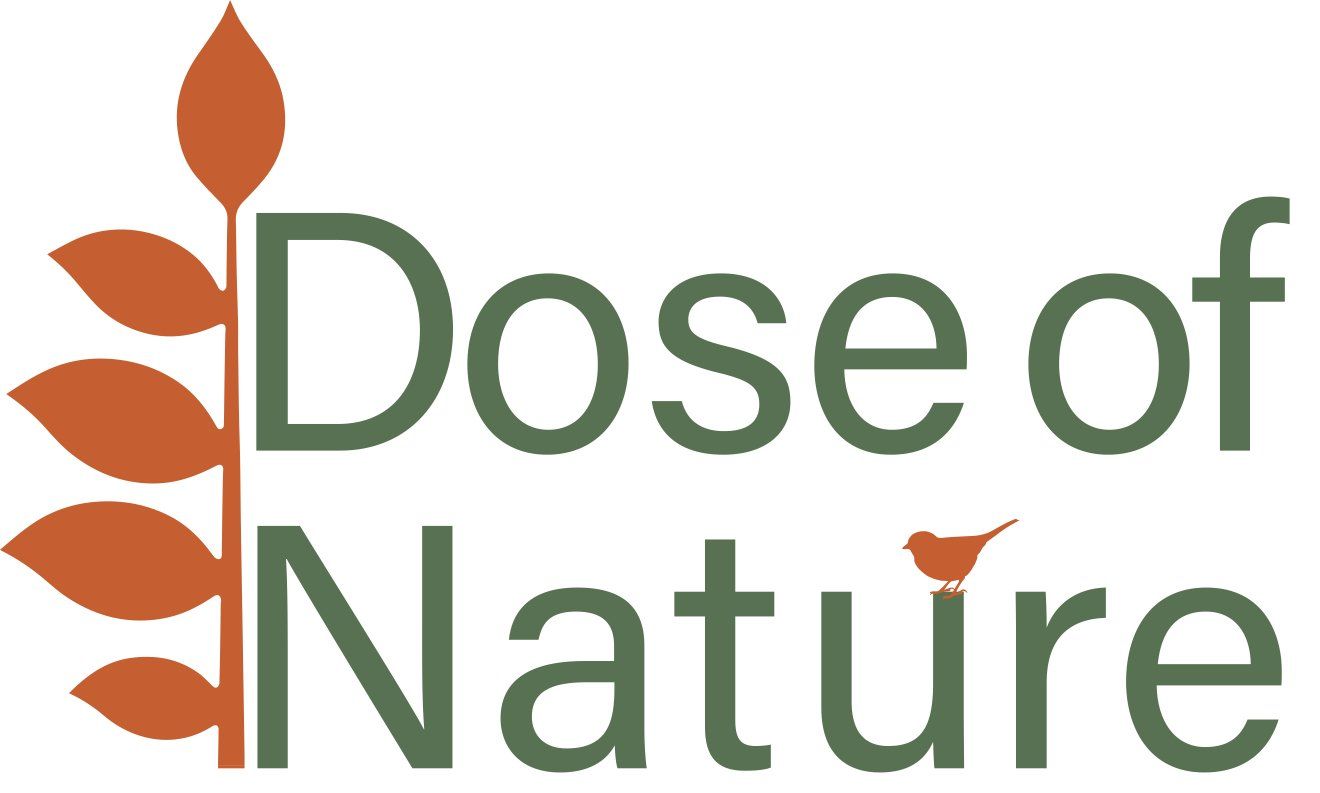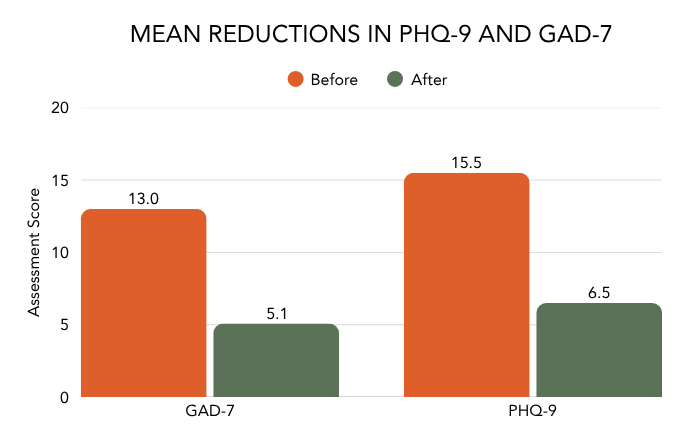Partner with us to deliver a psychology-led Dose of Nature Hub for your PCN
Aligned to Fit for Action.
Designed to reduce GP caseload
and accelerate access to personalised,
local support.
We are looking for a PCNs to partner with us to pioneer a new model of mental health support that meets the ambitions of the NHS Fit for Action plan while directly reducing GP caseload.
By embedding a Band 7 Psychologist as an ARRS-funded Mental Health Practitioner, your PCN can establish a Dose of Nature Hub that combines clinical rigour with a community-based approach, anticipating key principles of Fit for Action.
This is not an additional burden on overstretched practices. It is a collaborative, ready-to-deploy service that improves outcomes, relieves GP time, and demonstrates measurable population health benefit.
The mental health crisis
The NHS is navigating a mental health crisis that shows no sign of abating.
In 2023, more than five million people were referred to mental health services, a 38% increase on 2019. In primary care, the Royal College of General Practitioners estimates that up to 40% of GP appointments are driven by mental health needs, with anxiety and depression alone making up around 30% of these consultations.
Despite substantial investment in NHS Talking Therapies — approaching £900 million a year — and unprecedented levels of prescribing, with 85 million antidepressant prescriptions issued in 2022, demand continues to outstrip capacity.
Waiting times for psychological support can stretch to months, and for children and young people referred to CAMHS, two-thirds will wait more than a year.
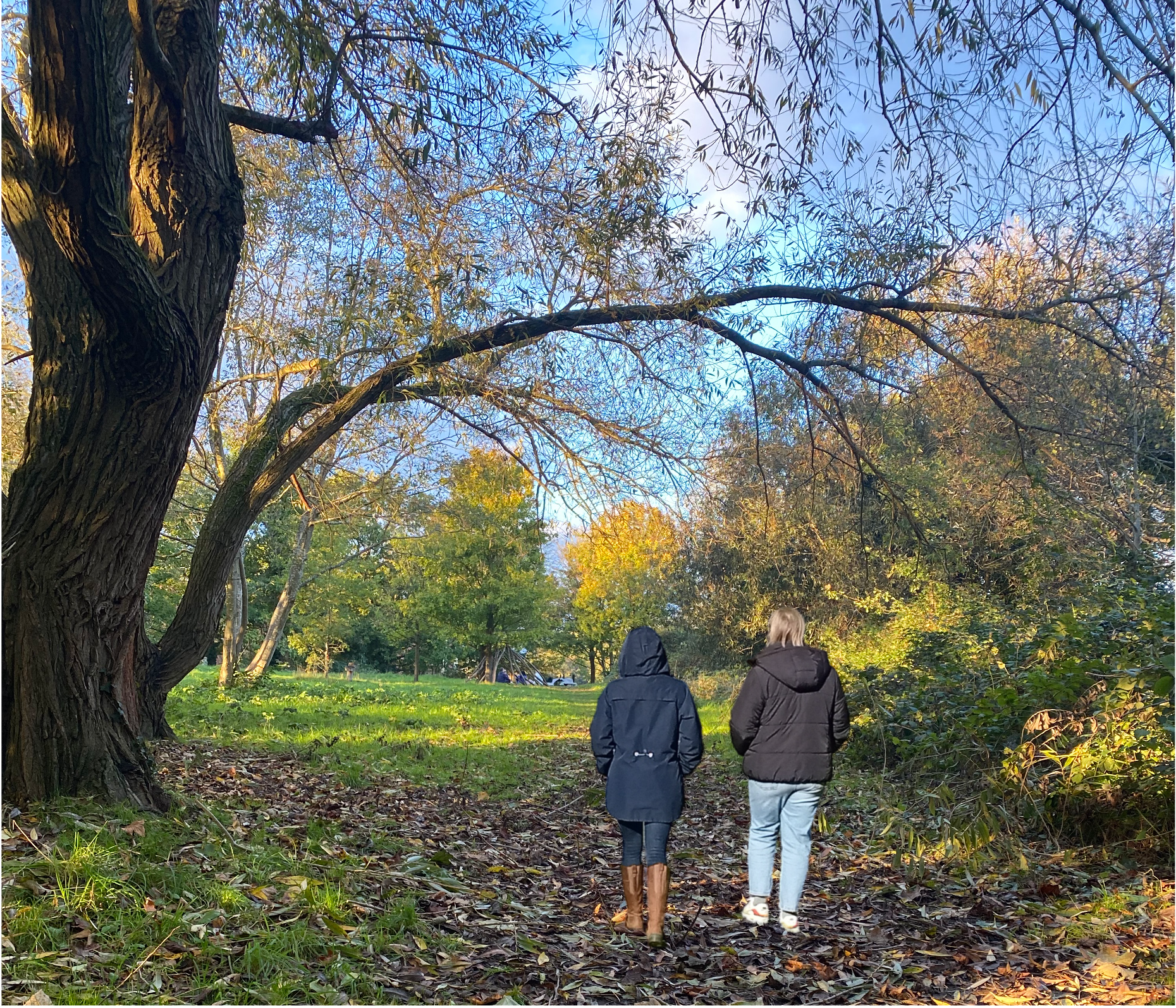
The case for Nature as a clinical modality
For decades, research has shown that nature contact is not just pleasant, but measurably good for mental health.
Exposure to natural environments has been found to reduce symptoms of anxiety, depression, post-traumatic stress and stress-related disorders.
The mechanisms are multiple:
- the sights and sounds of nature activate the parasympathetic nervous system;
- volatile organic compounds released by trees boost immune function;
- microbiome exposure in soil improves resilience;
- natural fractal patterns trigger brain states associated with calm and alertness;
- feelings of awe reframe perspective and reduce rumination
- ... and many more.

This is not niche science.
The evidence base spans controlled laboratory studies, large-scale epidemiological research, and real-world intervention trials. In several domains — including stress recovery, emotional regulation, and attention restoration — the findings are as strong as those supporting established psychological treatments.
The conclusion is clear: nature can be an active therapeutic agent
Dose of Nature - a proven clinical model
Dose of Nature has developed a clinically governed, volunteer-supported model that harnesses nature as a first-line therapeutic resource for common mental health disorders.
Each programme begins with a clinical assessment and review by a qualified psychologist or Band 7+ clinician. Participants are then matched with a trained volunteer Nature Guide for an eight-week programme of guided outdoor sessions, supported by structured psycho-education on how nature supports mental health.
The model allows for progression into group activities, with ongoing volunteer contact to sustain engagement and prevent relapse.
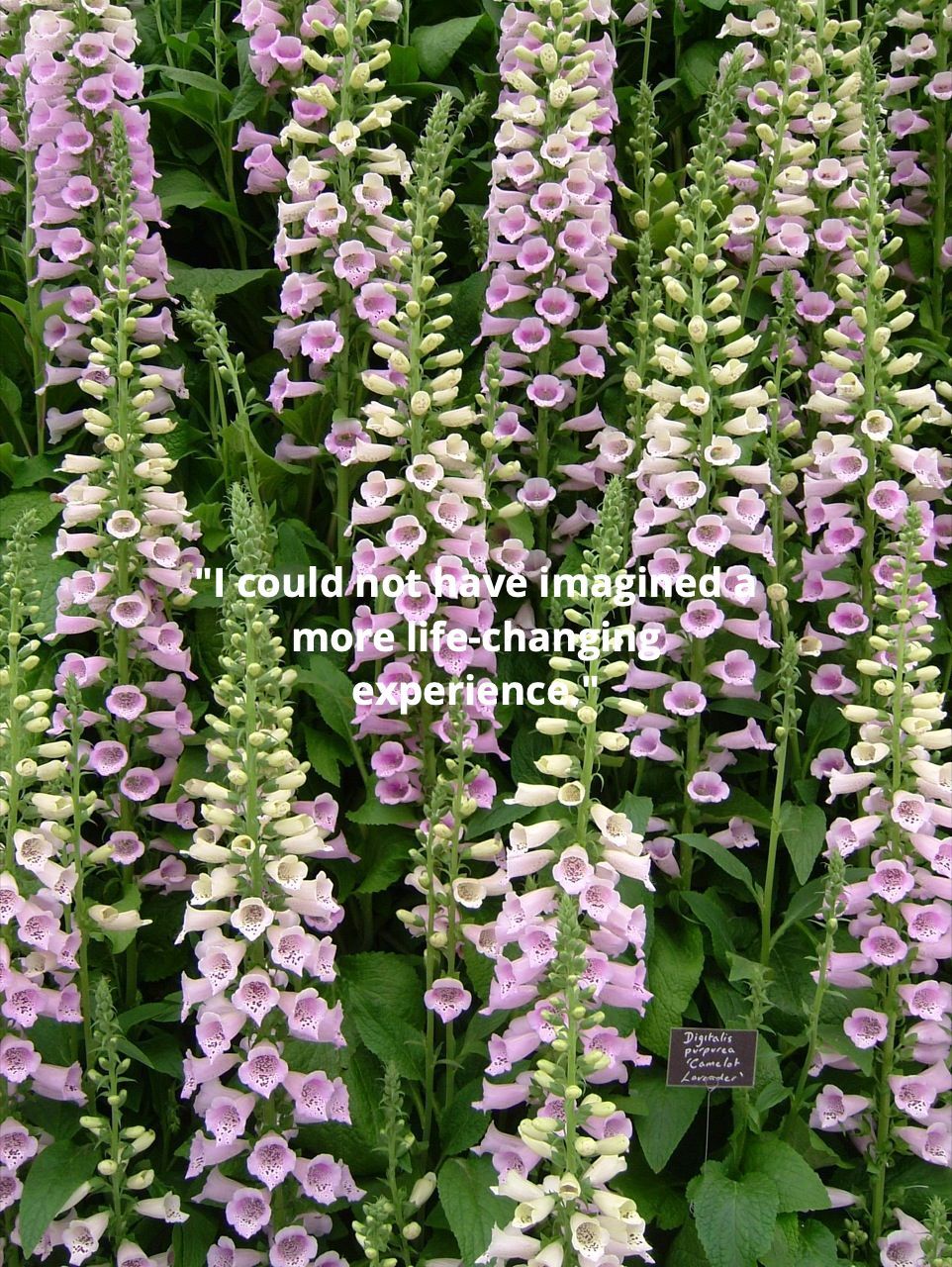
More effective than CBT
The results are striking.
In 2024–25, the charity received 800 GP referrals from 133 surgeries. Recovery and Reliable Improvement rates consistently exceed those of NHS CBT: 75% versus 53% for anxiety, 71% versus 45% for depression. Interim results from an independent randomised controlled trial conducted by the LSE confirm clinically significant improvements not only in anxiety and depression but in life satisfaction and sense of purpose. A GP-led study found that patients who completed a Dose of Nature Prescription had 40% fewer GP contacts in the six months following intervention.
This hybrid model - combining clinical oversight with community-based volunteer delivery - has a particular strength. The presence of a qualified mental health professional ensures NICE-compliant clinical appropriateness, making it safe to refer patients with active anxiety and depression.
The opportunity for PCNs
Primary Care Networks (PCNs) are already in a position to integrate the Dose of Nature model. Thanks to the Additional Roles Reimbursement Scheme (ARRS), which may include Social Prescribing Link Workers as well as Mental Health Practitioners, many already host an expanded team.
A PCN-level Hub?
Locating Dose of Nature hubs at the level of a Primary Care Network can bring the service into daily contact with the GP referral ecosystem, enabling rapid uptake and seamless inclusion in local care pathways.
Each hub can work with the existing local green spaces, from public parks to community gardens, using them as the stage for intervention. It can build on the PCN’s existing relationships with local authorities, voluntary organisations, and public health teams. It becomes a visible, accessible asset for the whole community — one that is both clinically credible and locally embedded.

The Band 7 MHP is the keystone in the Hub’s community structure.
At the heart of each hub would be a Band 7 Adult Mental Health Practitioner. This role is critical: the MHP holds the clinical responsibility for assessments and reviews, manages safeguarding and risk, supervises volunteers, and maintains fidelity to the therapeutic model. They are also the bridge between the hub and other PCN services — mental health teams, social prescribers, Talking Therapies, and secondary care.
By recruiting, training and supervising volunteer Nature Guides — often including graduates of the programme — they create a network of peer supporters who extend the impact of the clinical intervention. The result is a community of practice, where recovery is reinforced by ongoing contact, and where clients become volunteers, perpetuating the cycle of engagement.
Operational feasibility and impact
A single hub led by a full-time Band 7 MHP, supported by an operations coordinator and 20–40 trained volunteers, can manage 200–300 clients a year.
At a cost per patient well below that of a course of NHS CBT, and with superior clinical outcomes, the model offers an exceptional return on investment.
The initial cost of employing a Band 7 MHP, around £60,000 including on-costs, is used to activate a supervised volunteer workforce that dramatically increases reach without compromising safety or quality.
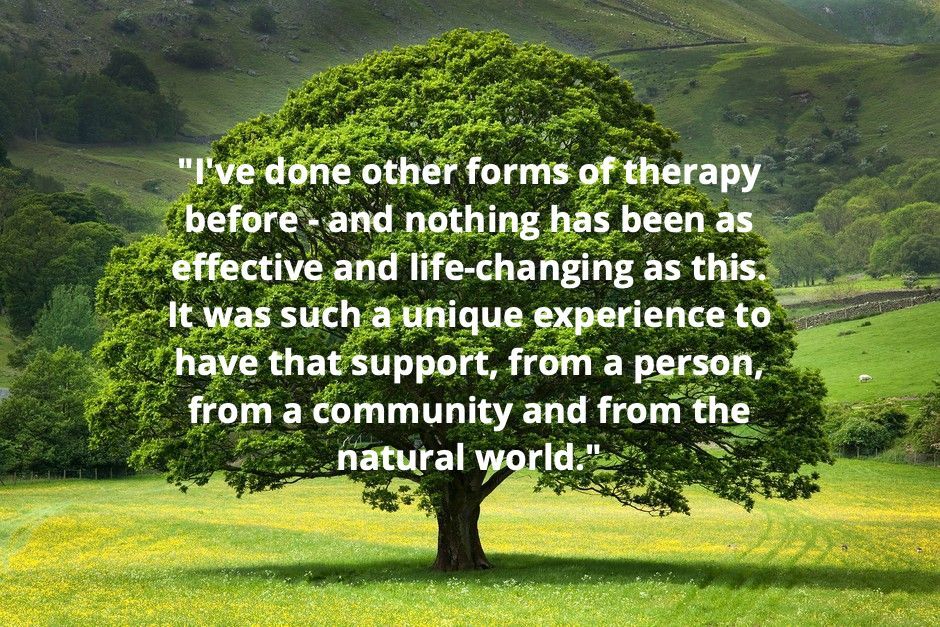
The benefits flow in multiple directions. For the NHS, Dose of Nature hubs increase mental health system resilience by offering a clinically safe, lower-cost intervention that can prevent escalation to higher-intensity services. For PCNs, they strengthen integration with preventive and lifestyle approaches while providing a new clinical pathway for mental health. For communities, they build local capacity, increase social connectedness, and support pro-environmental engagement.
Funding
- The initial cost of employing a Band 7 MHP (around £60,000 including on-costs), unlocks a supervised volunteer workforce that dramatically increases reach without compromising safety or quality.
- The ARRS Mental Health Practitioner role explicitly includes Clinical Psychologists at Band 4–8a.
- The first post in a PCN is co-funded (50% ARRS, 50% ICS transformation), with additional posts reimbursable via ARRS.
- This enables PCNs to establish a new, clinically led service with minimal budget impact, delivering maximum system benefit.
Alignment with policy and system priorities
The model aligns with the NHS Long Term Plan’s emphasis on prevention, personalised care, and community integration. It supports the Fit for Action vision for local, personalised, on-demand mental health services that build community resilience. It addresses health inequalities by being effective in deprived, multi-ethnic urban contexts as well as more affluent areas.
Perhaps most importantly, it expands the concept of what constitutes legitimate clinical care in the NHS. It demonstrates that nature-based interventions, when properly governed and delivered, can sit alongside established therapies as a first-line option for certain patient groups.
Nature is the agent, community is the vehicle, and the Band 7 MHP is the keystone.

Why partner with Dose of Nature?
- Five years of clinical experience
Dose of Nature has operated this model since 2018 and has now received well over 2000 GP referrals.
- Clinically validated outcomes
An LSE evaluation confirmed Dose of Nature Prescriptions reduce depression and anxiety by 5–6 points on clinical scales, outperforming NHS CBT at lower cost.
- Operationally ready for rapid deployment
We don’t just supply a concept — we bring standard operating procedures, training, systems and psycho-educational materials to ensure seamless implementation across your PCN.
If you would like to explore the practicalities of opening a Dose of Nature hub attached to your PCN, building community resilience, and supporting your patient rolls with a highly effective local service, please hit the button below.
We will be in touch to send you an information pack and organise a subsequent introductory call to explain how partnership would work.

